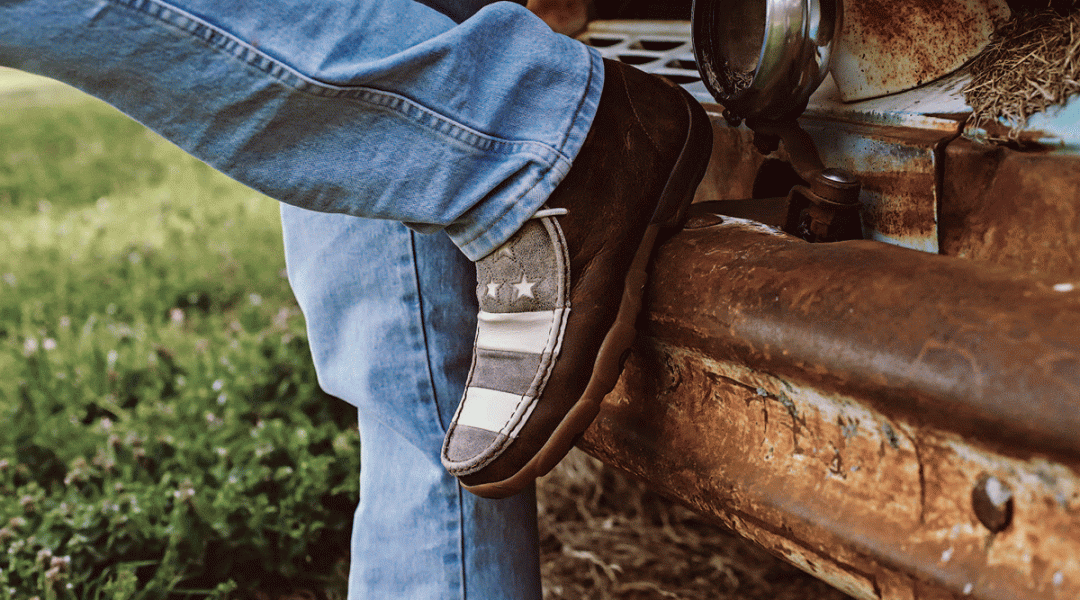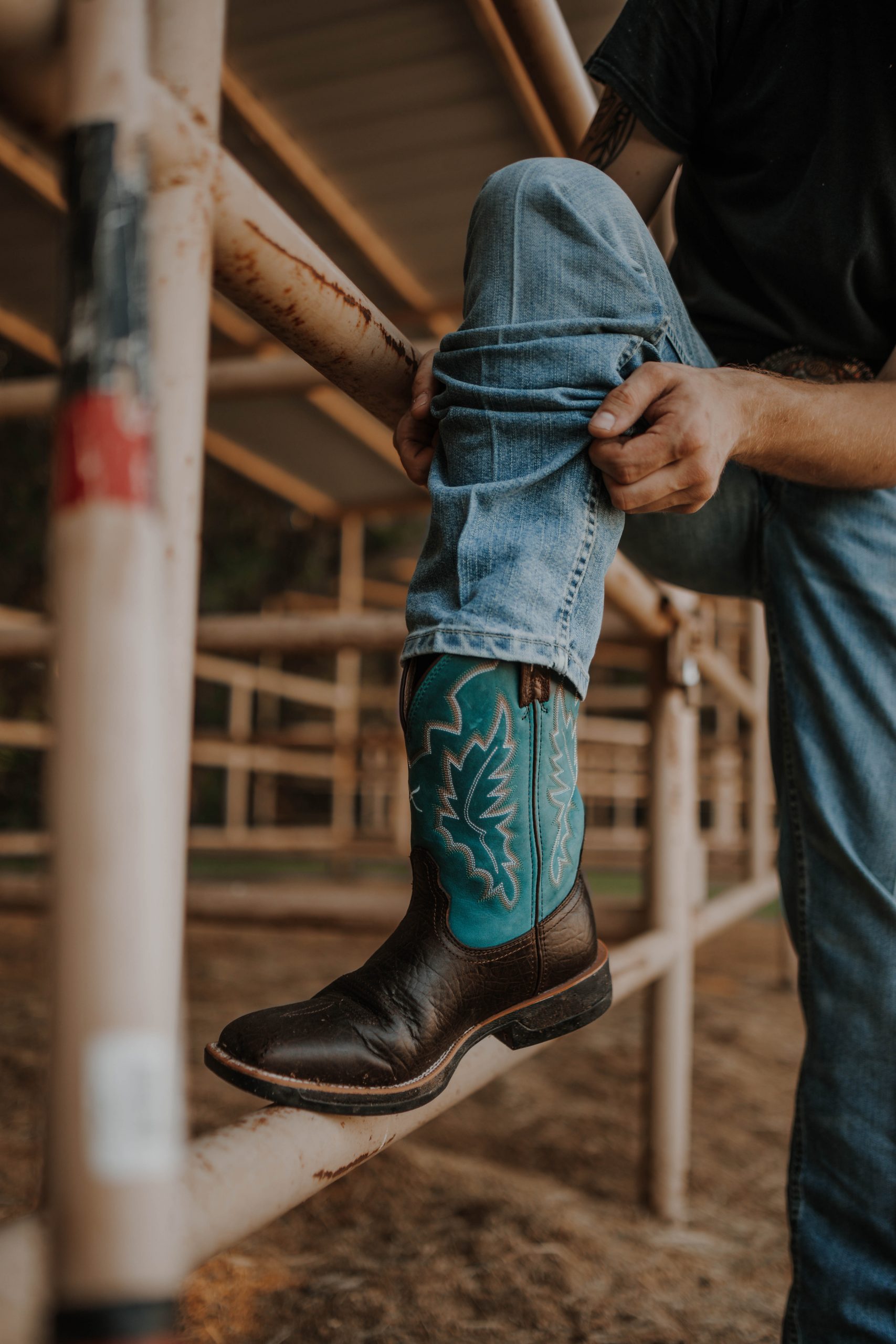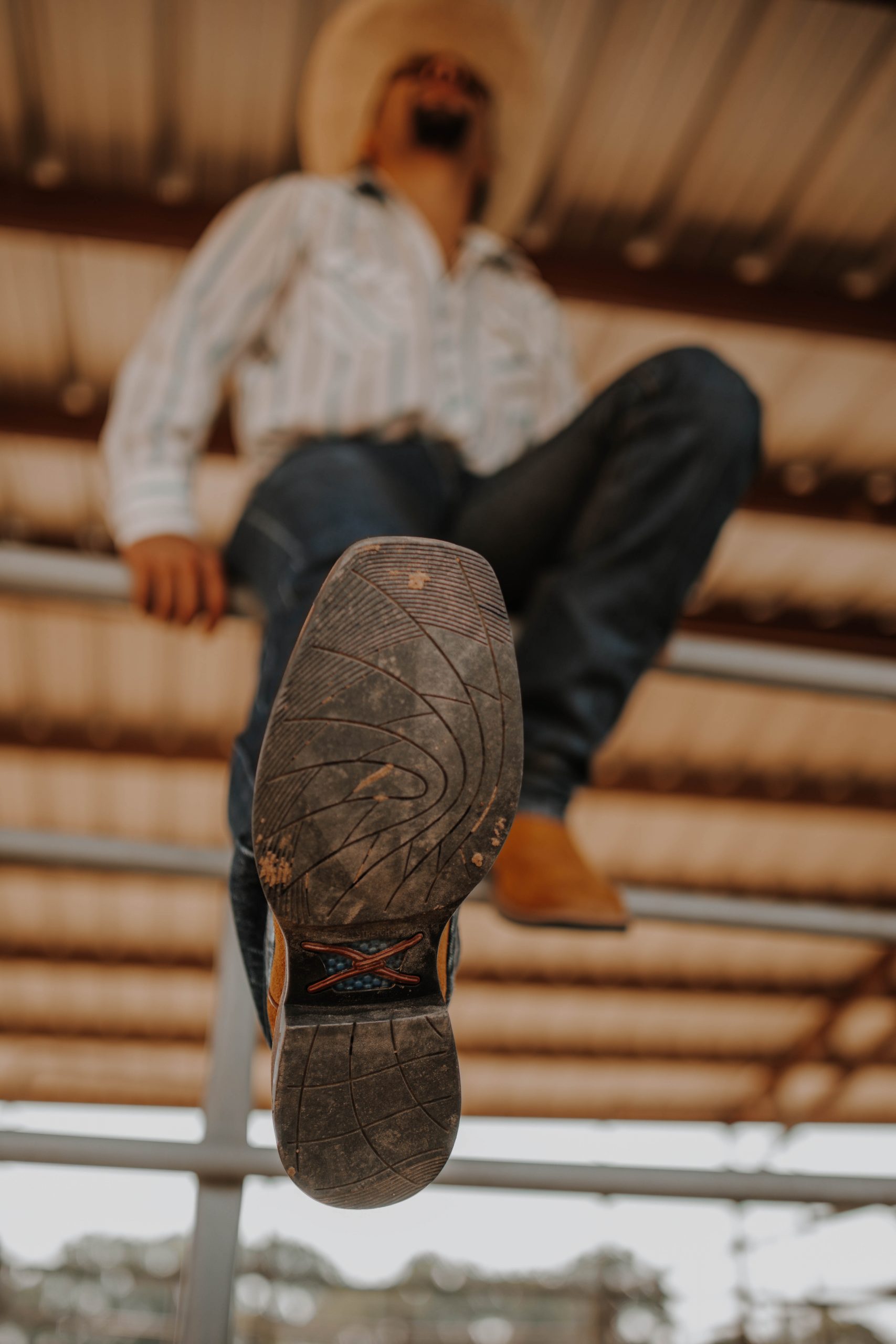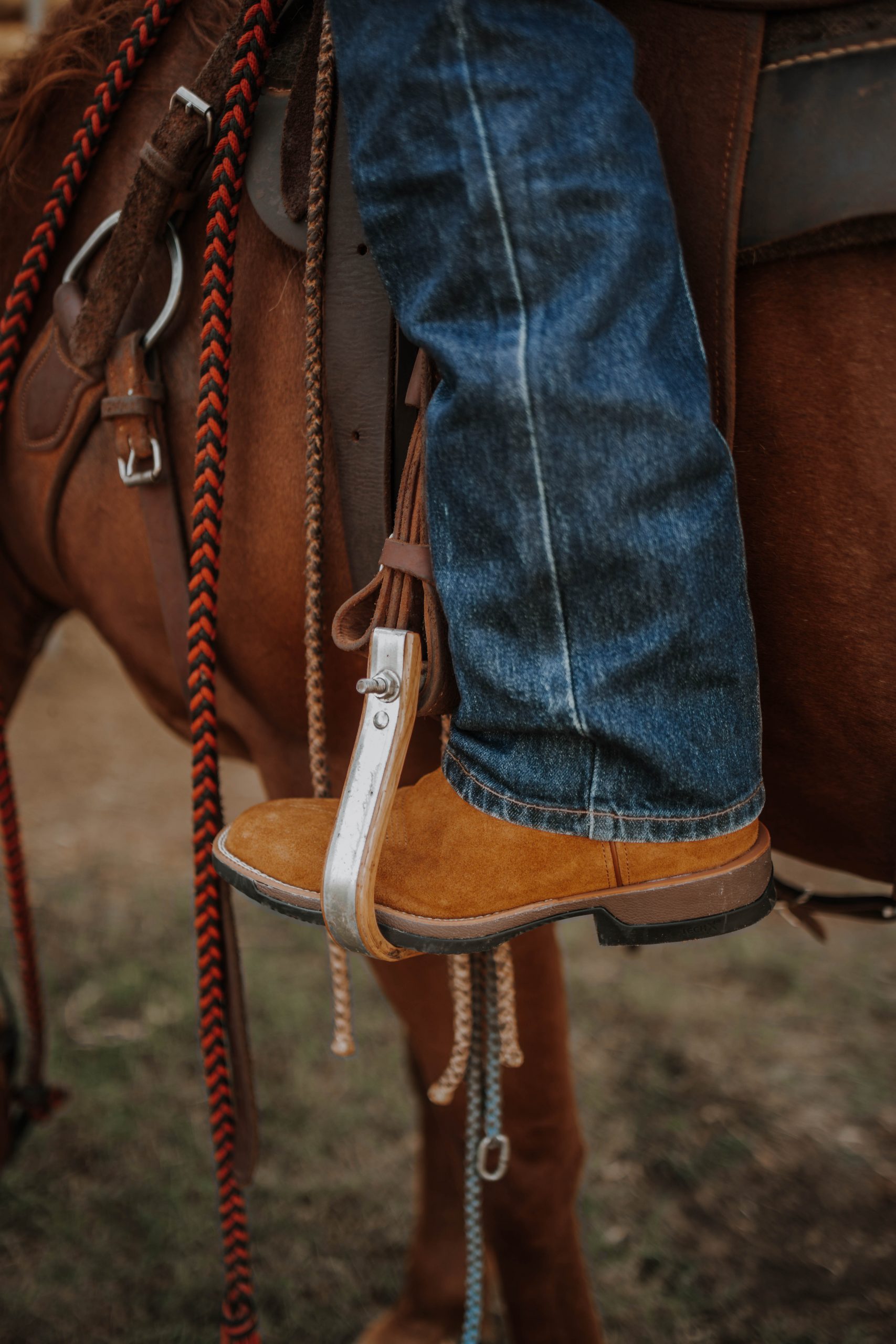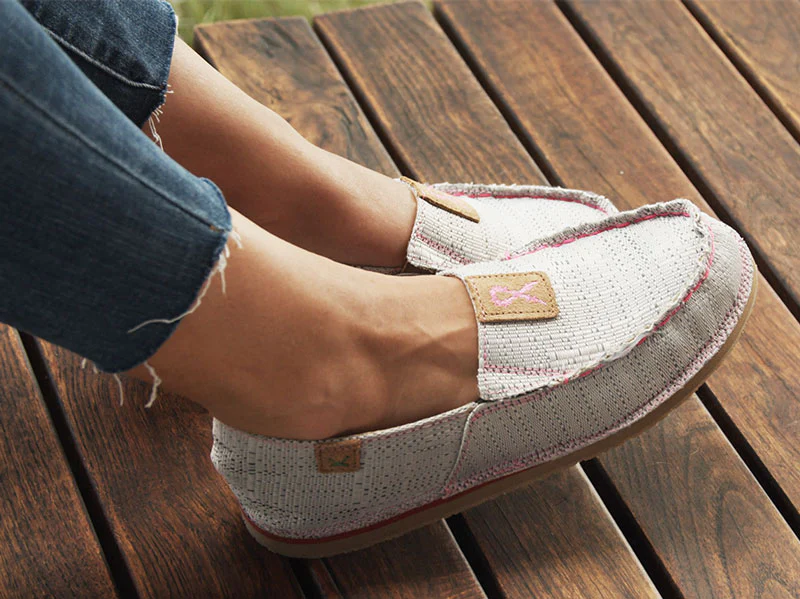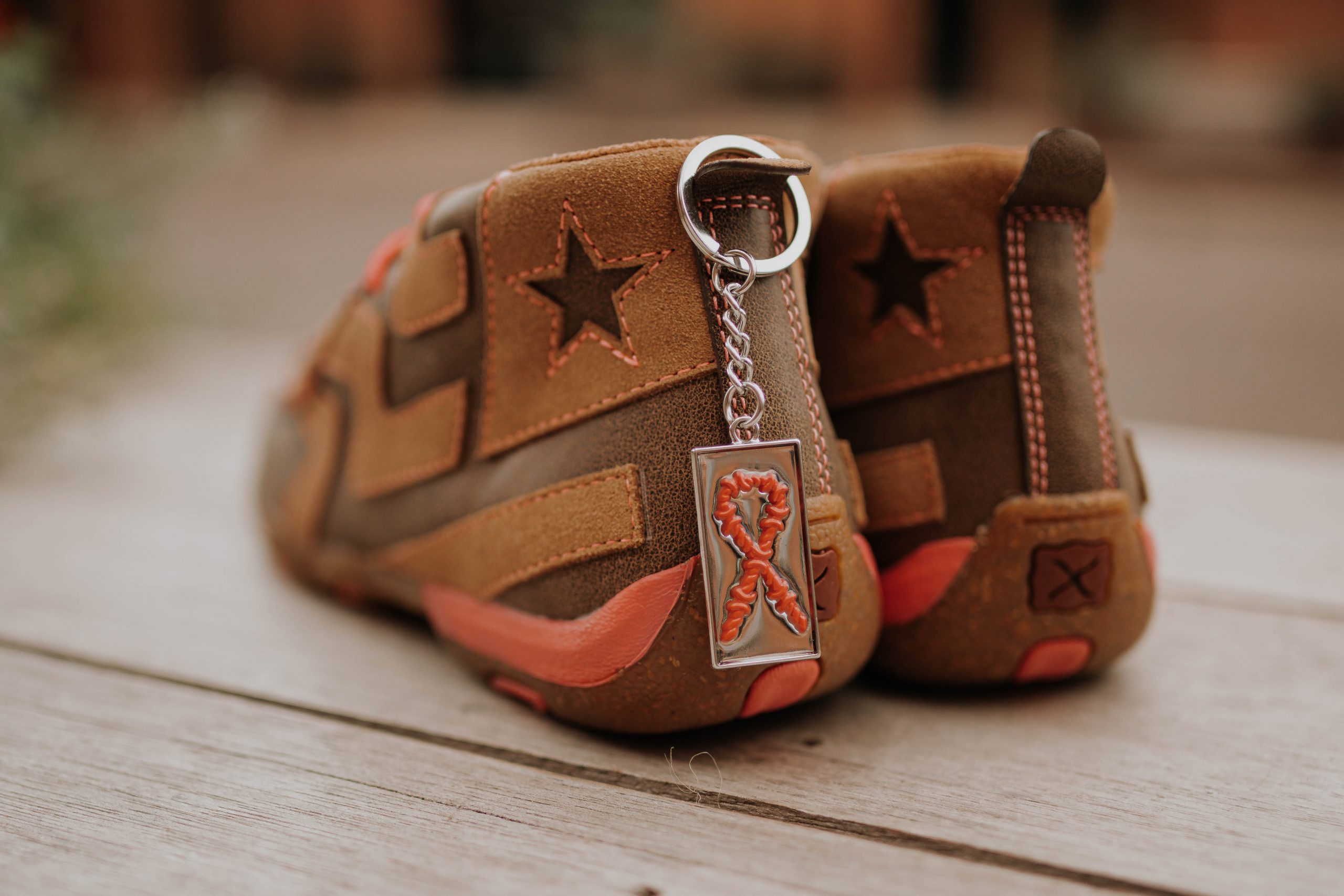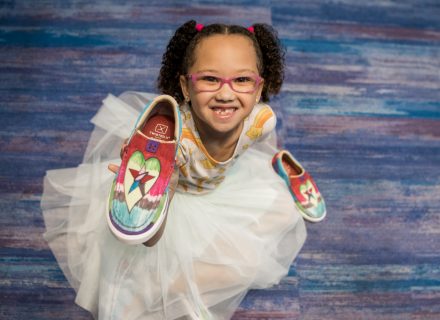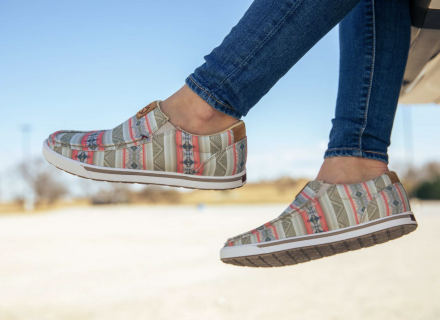As more consumers move to implement eco-friendly practices into their fashion, Twisted X has distinguished itself as a leader in sustainable Western style.
It was 2012 when Western footwear brand Twisted X’s CEO, Prasad Reddy, learned about the Great Pacific Garbage Patch, a massive collection of debris, or litter, particularly small pieces of plastic, floating in the Pacific Ocean — a vortex “island of trash” so vast that the amount of debris is impossible to fully measure, according to National Geographic. He knew he had to do something. Since then, it’s clear that the world’s pollution problem has only grown. That’s why Twisted X’s commitment to do something about it has only grown, too.
In 2017, they partnered with a supplier who could make textile material out of plastic bottles and began to share ideas between the supplier and their product development team. That’s how Twisted X’s ecoTWX® (pronounced eco-Twix) fabric was born. Made from approximately 13 recycled plastic bottles for each pair of shoes, EcoTWX is now used on the upper portions of many Twisted X styles. Since launching ecoTWX®, Twisted X has upcycled more than 7.5 million plastic bottles that would have otherwise ended up in landfills or oceans, and the company is continuing to expand its sustainability efforts.
“We utilize many eco-friendly materials such as rice husks in our outsoles, upcycled factory waste in our Blend85™ footbeds and our leatherTWX™ recycled leather fabric, molasses EVA midsoles, and bamboo laces to name a few,” says Twisted X chief marketing officer Tricia Mahoney. “We continue to push and innovate in sustainability and the footwear industry as a whole. Sustainability is something that we are passionate about every step of the way. From product design to the manufacturing process to marketing, it is an aspect that plays an important role in every decision we make inside and outside of the walls of our office,” she says.
To see this commitment come to life in a very literal way, Twisted X also plants a tree for every pair of ecoTWX and Zero-XTM shoes sold.
They’ve reduced the amount of chemicals used in leather processing and made their shoeboxes from 85 percent recycled material. Additionally, the brand has brought to market Zero-X, a no-glue shoe collection that removes glue from the shoe manufacturing process that would typically include harmful toxins and higher energy requirements to produce.
Twisted X aims to bring a new sustainable innovation to market every six months. To do this, they collaborate with their suppliers and learn from others in the sustainable fashion industry. Likewise, they readily share their own innovations and findings back with the industry for the good of all. “When we [all] work as a team, we can make things happen,” Reddy says of the collaborative spirit.
And the “stronger together” concept is loud and clear with Twisted X’s move to join brands like Nike in the commitment to not ship their products through arctic waters with the Arctic Shipping Pledge.
The mission of doing good for the planet and communities with their various philanthropic initiatives has been inspiring for Twisted X employees, Mahoney says.
“It has permeated through everyone who works here, how they approach their life, and it’s a point of pride for the employees. We hear that a lot. It’s just good to see the efforts of what we’re doing. It feels good to do good, and that’s a huge benefit to the organization,” she assures.
These efforts are also intrinsically tied to the kinds of people Twisted X makes most of its products for, those in the Western lifestyle, though the audience might not always use the word sustainability, according to Mahoney.
“The Western community generationally lives and works on the land. Sustainability, when you use that word with the Western community it doesn’t necessarily resonate, because they already do it. They’re doing it every day of their life on the land that they’re living. They care for the land. They care for their animals and their crops and producing the products that they’re producing, and it’s generational. It’s not just of this moment. It’s where they’ve come from and also where they’re going,” she says. “For the Western audience, we talk to them differently, and it’s interesting when you change that dialog, even that one word, it changes their perception of how and what we’re doing with footwear,” Mahoney adds in relation to the company’s “Love of the Land” campaign, an Earth Day initiative.
But ultimately, whether Twisted X’s customers [retailers] or the end customer [retailer's consumers], gravitate to the company’s sustainability efforts or not, the brand commits to having quality products that speak for themselves, just with the added bonus of sustainability, Mahoney explains.
“The product still works and sells from the styling and the durability of the product. For those that do care about the sustainability efforts that we’re doing — which there are more and more almost every month, more retailers that this is becoming a focus of theirs, because the end consumers are now voicing an interest — it’s just a benefit for what we’re doing now. That message is resonating both for the retailers and the end consumers.”
For Reddy, that growing awareness is all part of the mission. “I think all of us, every human being, wants to do good. They don’t want to pollute the planet, but sometimes you need a platform, we are giving that,” he says.
Mahoney and Reddy both add that one of the easiest ways that retailers can join in the efforts is to support brands like Twisted X in choosing products that focus on sustainability.
“If they use the criteria of those manufacturers that embody doing good for the planet, and they use them as part of their criteria for the lines that they carry in their stores, it does help, and it’s honestly probably the fastest and easiest way for them to [aid sustainability efforts],” Mahoney says.
In addition to partnering with retailers to spread their commitment to sustainability, Twisted X has partnered with Wrangler for Wrangler’s sustainable footwear line including designs in collaboration for Wrangler’s 75th anniversary.
Like Twisted X, Wrangler is committed to sustainability, vowing to reduce water usage by 50% by 2030, as well as have 100% sustainable cotton, 100% renewable energy and 100% clean chemistry by 2025, according to their website.
All of these individual initiatives and efforts add up to a big impact for the industry. Check out our tips for how you can get involved.
Sustainability Tips with Big Impact for Small Businesses
Turn off the lights
It may sound simple, but one of the easiest and fastest ways to be more sustainable is to shut off as many lights and electronics not in use as possible. Entrepreneur Magazine reports that a “switch-off” policy in businesses helps employees to remember to shut down electricity-sucking devices and lighting at the end of each work day. LED lights and motion-censored lights are other good ways to reduce your energy costs.
Ditch the plastic
Though any type of bag you use has environmental pros and cons, consider offering paper or reusable bags to customers. National Geographic reports that, while manufacturing plastic bags results in less carbon emissions than manufacturing of paper bags, from a sustainability standpoint, paper bags are easier to recycle and are biodegradable unlike plastic. Therefore, this reduces the litter build up across land and sea.
Break the break room cycle
Take a hard look at your single-use plastics and other disposable items, such as coffee pods, plastic utensils, paper towels or paper plates and perhaps invest in reusable alternatives. Twisted X has focused on eliminating single-use plastics inside their office walls, but in doing so, they’ve also found the trends and resulting benefits transcend to their employees’ home lives and even communities.
Position sustainable products as high-grade products
Inc. Magazine recently reported that consumers have a willingness to spend more money on a product that is considered more sustainable than another similar product. The magazine states that business owners are benefiting from intentionally sourcing sustainable goods and marketing them accordingly as premium choices. Take a look at suppliers and make an effort to incorporate products from brands that lessen their environmental impact wherever possible, and you’ll quite possibly see an economic benefit as well.
Make it a team effort
Gather a group of employees committed to making your business more sustainable and give them ownership on sustainability initiatives. Harvard University surveyed its Green Team Leaders Network for tips on an effective “Green Team.” They report that it’s key to start off small and make the efforts fun for participants but also to ensure your group is able to have regular meetings and effectively communicate your business’ efforts both internally and externally.
Give back
The World Wildlife Fund suggests adopting annual volunteer days for your staff through partnering with local charities. That way the benefits are seen in your own backyard, your employees can bond together outside of the workplace and often, depending on the volunteer event, employees can get out in nature and gain those added benefits at the same time.






